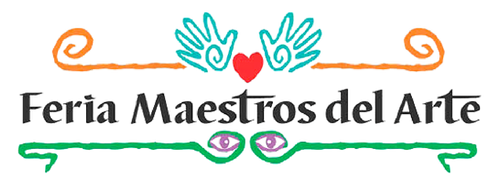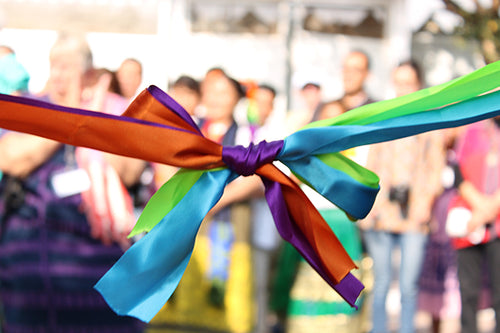
Matilde Hernández Pérez, San Cristóbal de las Casas, Chiapas
The women of Chamula had been making little dolls of wool scraps for many years and selling them to tourists when in 1994 they saw a new business opportunity.
During the Zapatista uprising they quickly started making little figures of various Zapatista characters on their horses and then branched out and also started making all kinds of animals and started selling them on the streets of San Cristóbal and at the various markets of artesanías in town.
They use the wool fabric the women weave to make the men’s poncho, stuff the animals with cotton and embroider them. You can see a great variety of them at the market around the ex-convento Santo Domingo in San Cristóbal where you can find Diana Laura and her mother, Matilde, selling their little animals by the church’s main entrance.
Matilde learned how to make the little toys at a young age from her mother and other relatives. She wears the traditional costume of the Tzotzil from Chamula but in speaking with her you find out she is a Tzeltal woman from San Fernando, a small Tseltal community near Huixtan.
Like many indigenous who now live in San Cristóbal de las Casas, she had to leave her community because of her religion and came to San Cristóbal where she met her husband, a man from Chamula. They settled in one of the colonias (neighborhoods) on the hills surrounding San Cristóbal and the extended family works at making these cute little toys and sell them at the Santo Domingo Market.
A different concept of animal husbandry undertaken by Tzotzil shepherdesses shows that the old romantic ways can also be very efficient and productive. Tzotzil women have preserved their local breeds of wool sheep at a time when global markets are shifting production goals into uniform, standardized outputs.
First of all, sheep are part of the culture of the Tzotzils; since they are sacred animals protected by the local religion, it is forbidden to hurt, kill or to eat them. Secondly, they are also the exclusive responsibility of women, who take every decision over any issue related to these animals and also keep and manage any money derived from their sheep. The Tzotzils believe that every person has an ‘animal companion’ who suffers the same fate as his or her soul mate. When a person is ill or dies, so does his or her animal companion. Even when most animal companions are wild animals, it is recognized that sheep can be the secondary soul mates of shamans and healers, and this is the reason for not hurting or killing them. However, it is only sheep that are sacred, and cows, horses or pigs are just domestic animals for the Tzotzils, who raise them, kill them, eat them, or sell them as needed.
Calle Damasco #78
San Cristóbal de las Casas, Chiapas
967 118 8527 WhatsApp

